Filter by

Three philosophical poets.
OCLC-licensed vendor bibliographic record.
- Edition
- [Critical edition].
- ISBN/ISSN
- 9780262356411
- Collation
- 1 online resource (280 pages).
- Series Title
- -
- Call Number
- -

The spider's thread :metaphor in mind, brain, and poetry
An examination of metaphor in poetry as a microcosm of the human imagination--a way to understand the mechanisms of creativity. In The Spider's Thread , Keith Holyoak looks at metaphor as a microcosm of the creative imagination. Holyoak, a psychologist and poet, draws on the perspectives of thinkers from the humanities--poets, philosophers, and critics--and from the sciences--psychologists, neu…
- Edition
- -
- ISBN/ISSN
- 9780262350822
- Collation
- 1 online resource (288 pages).
- Series Title
- -
- Call Number
- -
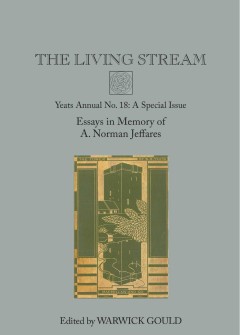
The Living Stream Yeats Annual No. 18 : A Special Issue
Memories of the man are shared by Seamus Heaney, Christopher Rush and Colin Smythe, who compiles a bibliography of Jeffares’s work. Terence Brown, Neil Corcoran, Warwick Gould, Joseph M. Hassett, Phillip L. Marcus, Ann Saddlemyer, Ronald Schuchard, Deirdre Toomey and Helen Vendler offer essays on such topics as Yeats and the Colours of Poetry, Yeats’s Shakespeare, Yeats and Seamus Heaney, L…
- Edition
- -
- ISBN/ISSN
- 9781909254374
- Collation
- 396 halaman
- Series Title
- Yeats Annual
- Call Number
- 800 LIV
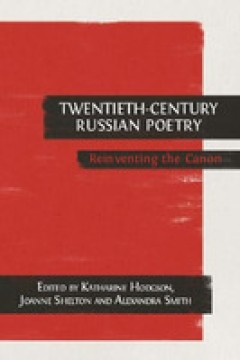
Twentieth-Century Russian Poetry: Reinventing the Canon
The canon of Russian poetry has been reshaped since the fall of the Soviet Union. A multi-authored study of changing cultural memory and identity, this revisionary work charts Russia’s shifting relationship to its own literature in the face of social upheaval. Literary canon and national identity are inextricably tied together, the composition of a canon being the attempt to single out those …
- Edition
- -
- ISBN/ISSN
- 9781783740871
- Collation
- -
- Series Title
- -
- Call Number
- -
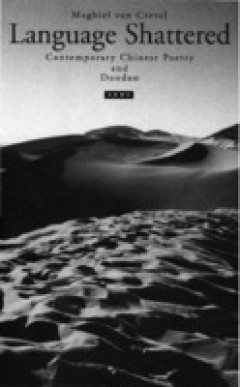
Language Shattered : Contemporary Chinese Poetry and Duoduo
Language Shattered is both a history of poetry from the People's Republic of China and a case study of the oeuvre of a leading Chinese poet. After the stifling orthodoxy of the 1950s and early 1960s, the terror of the Cultural Revolution (1966-1976) brought official Chinese literature to a total standstill. At the same time, disillusioned youths were more or less accidentally exposed to a varie…
- Edition
- -
- ISBN/ISSN
- 9789073782525
- Collation
- -
- Series Title
- -
- Call Number
- 800 CRE l
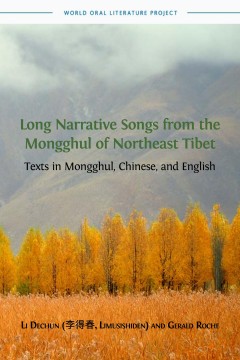
Long Narrative Songs from the Mongghul of Northeast Tibet : Texts in Mongghul…
" Containing ballads of martial heroism, tales of tragic lovers and visions of the nature of the world, Long Narrative Songs from the Mongghul of Northeast Tibet: Texts in Mongghul, Chinese, and English is a rich repository of songs collected amongst the Mongghul of the Seven Valleys, on the northeast Tibetan Plateau in western China. These songs represent the apogee of Mongghul oral literature…
- Edition
- -
- ISBN/ISSN
- 9781783743858
- Collation
- 470 halaman
- Series Title
- World Oral Literature Series Volume: 8
- Call Number
- 800 LON
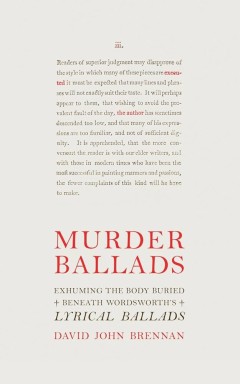
Murder Ballads : Exhuming The Body Buried Beneath Wordsworth's Lyrical Ballads
In 1798, William Wordsworth and Samuel Taylor Coleridge were engaged in a top secret experiment. This was not, as many assume, the creation of a book of poetry. A book emerged, to be sure—the landmark Lyrical Ballads. But in Murder Ballads, David John Brennan posits that the two poets were in fact pursuing far different ends: to birth from their poems a singular, idealized Poet. Despite their…
- Edition
- -
- ISBN/ISSN
- 9780692734629
- Collation
- 160 halaman
- Series Title
- -
- Call Number
- 800 BRE m
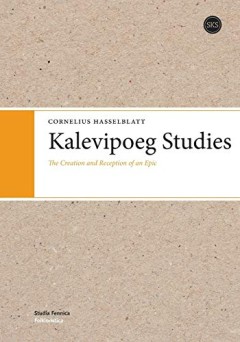
Kalevipoeg Studies : The Creation and Reception of An Epic
"The poem Kalevipoeg, over 19,000 lines in length, was composed by Friedrich Reinhold Kreutzwald (1803–1882) on the basis on folklore material. It was published in an Estonian-German bilingual edition in six instalments between 1857 and 1861; it went on to become the Estonian national epic. This first English-language monograph on the Kalevipoeg sheds light on various aspects of the emergence…
- Edition
- -
- ISBN/ISSN
- 9789522227119
- Collation
- 148 halaman
- Series Title
- -
- Call Number
- 800 HAS k
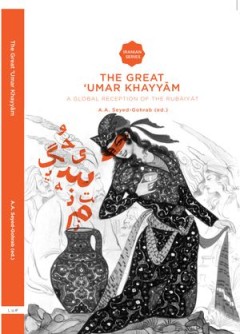
The Great Umar Khayyam : A Global Reception of the Rubáiyát
The Rubáiyát by the Persian poet ‘Umar Khayyæm (1048-1131) is used in contemporary Iran as a resistance literature, symbolizing the secularist voice in cultural debates. While Islamic fundamentalists criticize Khayyæm as an atheist and materialist philosopher who questions God’s creation and the promise of reward or punishment in the hereafter, secularist intellectuals see in him an exa…
- Edition
- -
- ISBN/ISSN
- 9789087281571
- Collation
- 288 halaman
- Series Title
- -
- Call Number
- 800 SEY g
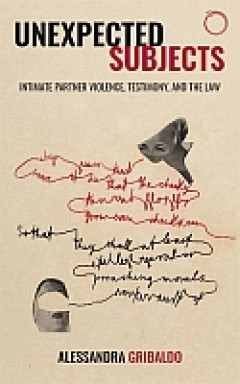
Unexpected Subjects: Intimate Partner Violence, Testimony, and the Law
Unexpected Subjects is an ethnography of the encounter between women’s words and the demands of the law in the context of adjudications on intimate partner violence. A study of institutional devices, it focuses on women’s practices of resistance and the elicitation of intelligible subjectivities. Using Italy as an illustrative case, Alessandra Gribaldo explores the problematic encounter bet…
- Edition
- -
- ISBN/ISSN
- 9781912808731
- Collation
- -
- Series Title
- -
- Call Number
- -
 Computer Science, Information & General Works
Computer Science, Information & General Works  Philosophy & Psychology
Philosophy & Psychology  Religion
Religion  Social Sciences
Social Sciences  Language
Language  Pure Science
Pure Science  Applied Sciences
Applied Sciences  Art & Recreation
Art & Recreation  Literature
Literature  History & Geography
History & Geography